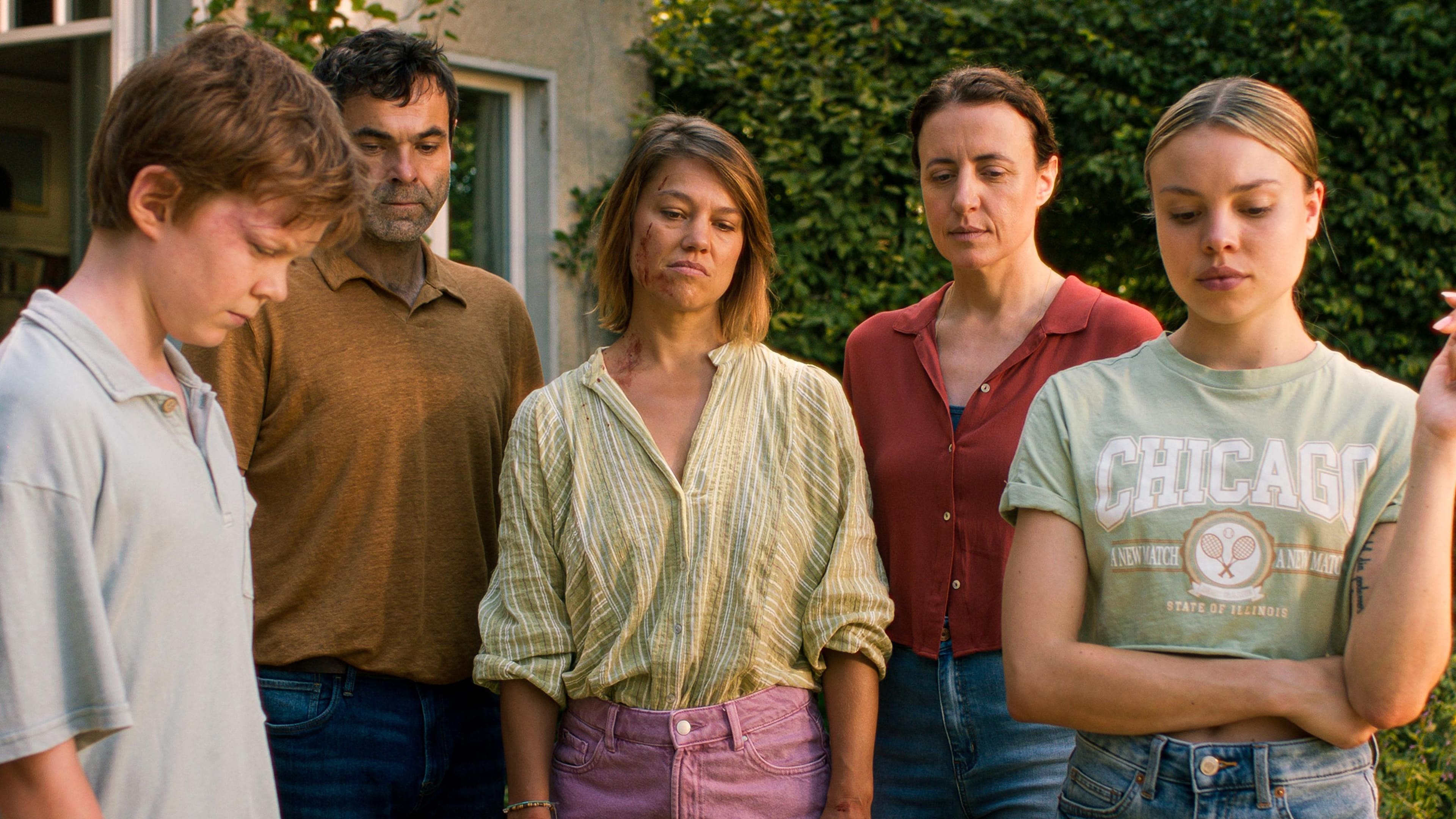
The Sparrow in the Chimney
Karen and Markus live with their children in Karen’s parents’ house. Karen’s sister Jule travels with her family to Markus’ birthday party. While Karen takes everyone’s breath away with her domineering manner, Jule is the complete opposite. Gradually a front forms against Karen until everything escalates into a fiery inferno. An inferno that destroys the old to create the new.
Brent Marchant@Brent_Marchant
To be blunt, I really dislike arthouse films that give the genre a bad name, yet writer-director Ramon Zürcher’s third feature outing regrettably does just that. This pretentious, meandering exercise in allegedly profound cinema falls flat shortly after it begins and never recovers, growing ever more pointless, unfocused and self-important as it unfolds. Set in the rural childhood home of two very different and quietly combative sisters (Maren Eggert, Britta Hammelstein), the film follows the events associated with a birthday celebration involving the siblings and their families. As the festivities (if they can be called that) begin to play out, however, it quickly becomes apparent that this party will go anything but smoothly given its cast of largely reprehensible characters, nearly all of whom utter their hate-filled insults with stoically deadpan monotone delivery. This examination of a seriously troubled family, in turn, increasingly draws heavily from “The Big Book of Domestic Dysfunctional Drama,” with virtually every character possessing a crippling physical and/or psychological disorder, qualities that shape their pervasively ugly demeanors. This hodgepodge of elements is thus employed in a futile attempt to build some type of cohesive narrative, presumably in an effort to depict the descent into madness. But this goal is never adequately realized, thanks in large part to a wealth of superficial, pedestrian dialogue that tries mightily to pass itself off as enigmatically “meaningful” and several preposterous surreal segments that are all show and no substance, sequences that resemble scenes out of “Carrie” (1976) or “Firestarter” (1984) if those films had been directed by Ingmar Bergman. And, no matter how much the filmmaker seeks to cover up these innate weaknesses by embellishing them with stunning still life cinematography, the strains of atmospheric classical music and long, lingering facial close-ups, the overall mix of elements just doesn’t work, growing progressively more muddled, laughable and tedious as this tiresome offering wears on…and on…and on. To make matters worse, though, the film also incorporates some positively repugnant images, such as a young woman slicing up her bloody hand on a cheese grater and a cat being locked into a washing machine that’s subsequently switched on, a shamefully disgusting sequence that’s wholly uncalled for, regardless of how simulated it may have been. It’s beyond me how this disastrous project got the green light to begin with, but this is handily one of the worst films of 2024, one that doesn’t deserve whatever attention and accolades it may erroneously garner.
